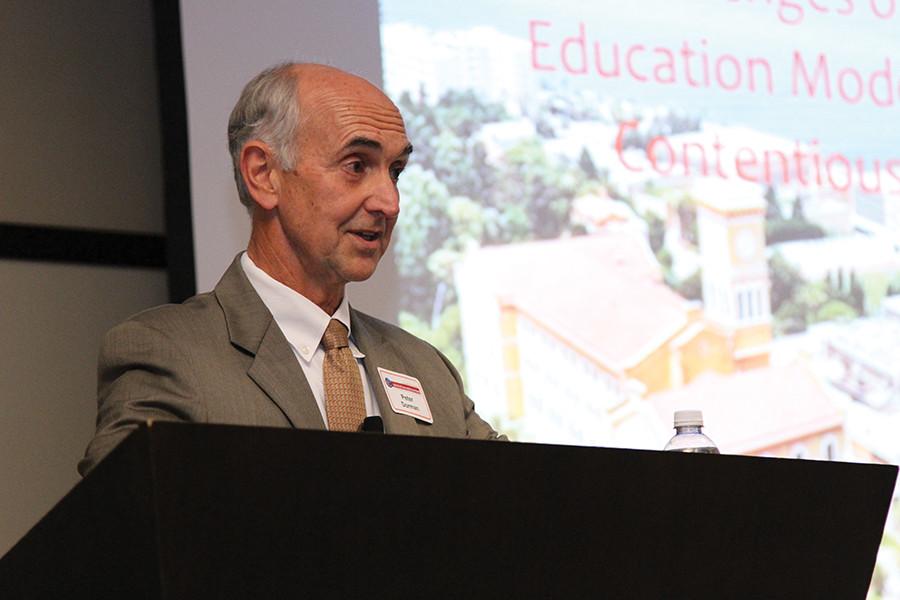Former American University of Beirut President Peter Dorman spoke last week about education in the Middle East.
The talk, titled “The Challenges of the U.S. Higher Education Model in a Dynamic, Contentious Middle East,” was part of the annual Hostler Lecture Series, which was hosted by the Charles W. Hostler Institute on World Affairs and co-sponsored by the Center for Islamic and Arabic Studies.
Dorman spoke anecdotally about his experience as the former president of AUB, from admitting the Syrian Minister of Interior to the school’s medical center without the public finding out, to enforcing Title IX policies within the school in a country that has limited legal protection against sexual assault.
Dorman also shared his thoughts on the educational landscape of the Middle East. He championed an emphasis on a liberal arts education.
“A liberal arts education seeks to provide an understanding of the ways in which the human mind has inquired, and continues to inquire, into it’s own self awareness,” he said at the event.
Dorman stepped down July 2015 after serving seven years as the president of American University of Beirut, the leading university in the Middle East since 1866, said Chinyeh Hostler, wife of Ambassador Charles W. Hostler and close friend of Dorman.
“I hope (SDSU students) take away a deeper understanding of who Dr. Dorman truly is and what his scholastic contributions have been throughout the years,” she said.
The lecture also provided attendees a chance to gain a more international perspective.
“It’s good to know like what other students, what other people like us are experiencing in other countries and to recognize our own privilege in the sense that what we take for granted in our university doesn’t come so easy all over the world,” said computer science senior Osama Alkhawaja.
Although the majority of the audience were members of the public, a handful of SDSU students attended the event.
ISCOR freshman Nicole Nicolas appreciated Dorman’s words on education and how the U.S. influences the youth in the Middle East.
“I think he gave really good insight on Middle East and U.S. relations, other than political and economic aspects,” she said.
However, a few students were more critical of the talk.
Alkhawaja thought Dorman was inconsistent in his values.
“A lot of times he would emphasize that it’s important to have the local people or the indigenous population come up with their own solutions, and that they need to be the ones to conspire to lead the way to pave the way to a new tomorrow in their own homeland,” he said, “But then he would constantly switch to saying that the western model needs to be implemented.”
ISCOR senior Stav Geffner said the lecture reaffirmed her thoughts on the institutional perspective on education society in Lebanon.
“I’m glad I came because I haven’t thought about the ways in which the ivory tower is an imperialistic tool in a long time and the ways in which our notions of humanitarianism, communitarianism and cultural cooperation and exchange are basically our own agendas,” she said.









